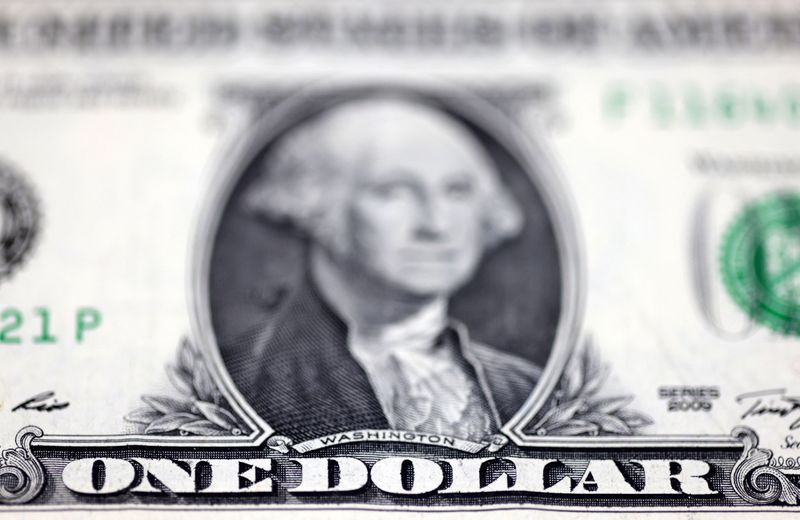Fubotv earnings beat by $0.10, revenue topped estimates
Investing.com - The U.S. dollar strengthened on Wednesday, bouncing from almost 11-week lows, mirroring a rebound in U.S. Treasury yields fueled by soft economic data and concerns over President Donald Trump’s tariff plans.
The dollar index, which measures the greenback against a basket of its currency peers, rose by 0.2% to 106.55 by 09:34 ET (14:34 GMT), recovering after sinking to their lowest level since early-December on Tuesday. The euro fell by 0.2% against the dollar to $1.0490, while sterling inched down by 0.1% to $1.2663.
The greenback was dented on Tuesday by weaker-than-expected consumer confidence data for February, which ramped up concerns over slowing private consumption. Private spending is a major driver of the U.S. economy, and faces pressure from Trump’s tariffs, sticky inflation, and rising food prices. Traders bet that a cooling U.S. economy will give the Federal Reserve more impetus to cut interest rates, which bodes poorly for the dollar. Treasury yields also sank on this notion, with Trump’s tariff threats- which tend to benefit the dollar- doing little to support the greenback.
But analysts noted that lingering uncertainty over the impact of Trump’s tariffs could lead the Fed to slowly roll out potential interest rate cuts this year. In January, the central bank pushed pause on an easing cycle that stretched back into last year, partly citing a murky outlook due to the levies.
Meanwhile, the Republican-controlled U.S. House of Representatives voted late on Tuesday to approve a $4.5 trillion package of tax cuts and border security measures, advancing a bill that includes many of President Trump’s biggest 2025 priorities.
"Having been under pressure on a weak set of consumer confidence readings, the dollar has found a little support overnight on news that the House has passed a budget blueprint bill," analysts at ING said in a note to clients. "The return of the financial market focus on tax cuts can probably buy the dollar a little time before we return to the issue of trade."
(Ambar Warrick contributed reporting.)
